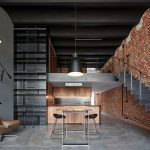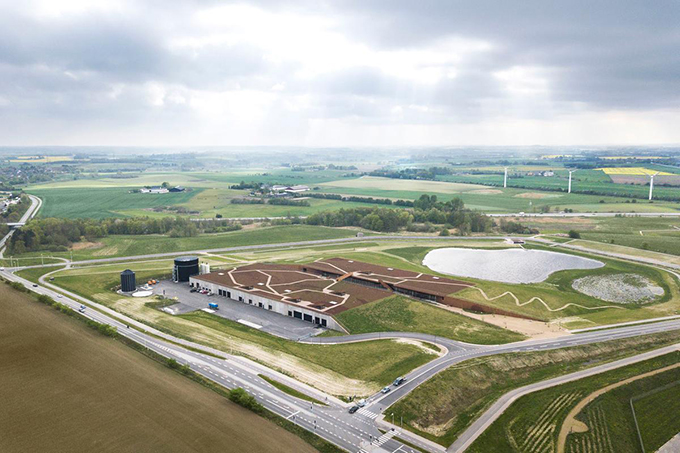
Nearly two-thirds of the world’s population experiences severe water scarcity during at least one month of the year. As climate change and global crowding intensify, this figure will only become more severe. Henning Larsen’s open, green-roofed, and accessible design in Hillerød is fit for a picnic, putting the community face to face with their use of resources. Discover more after the jump.
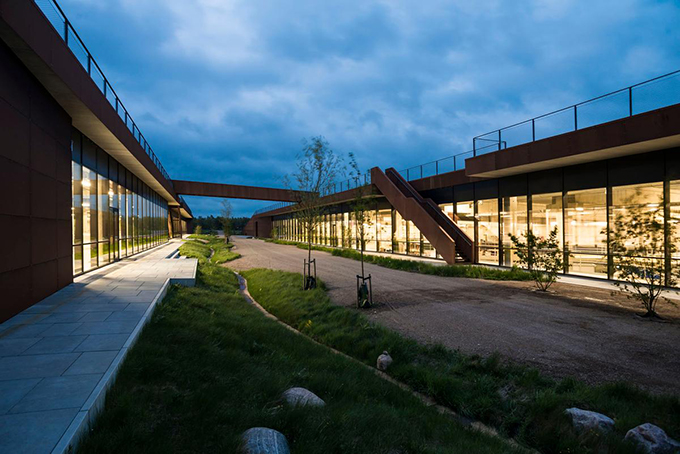
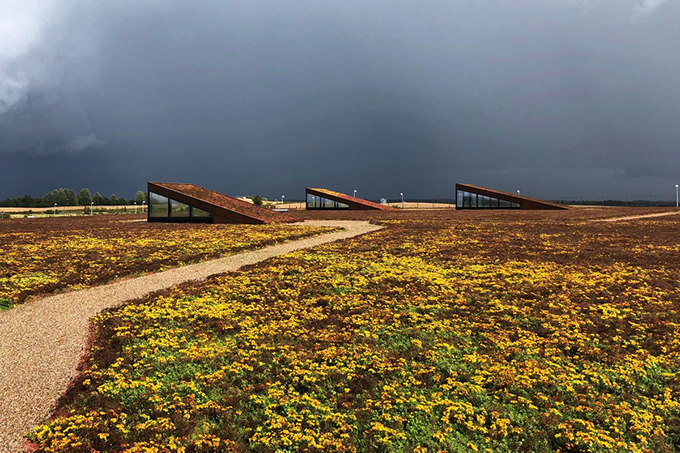
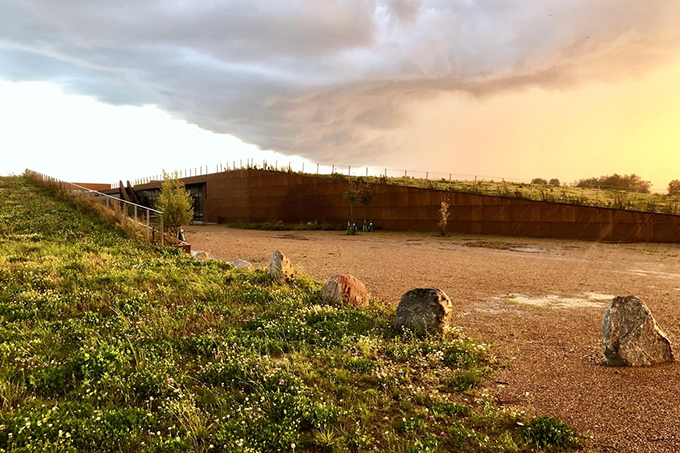
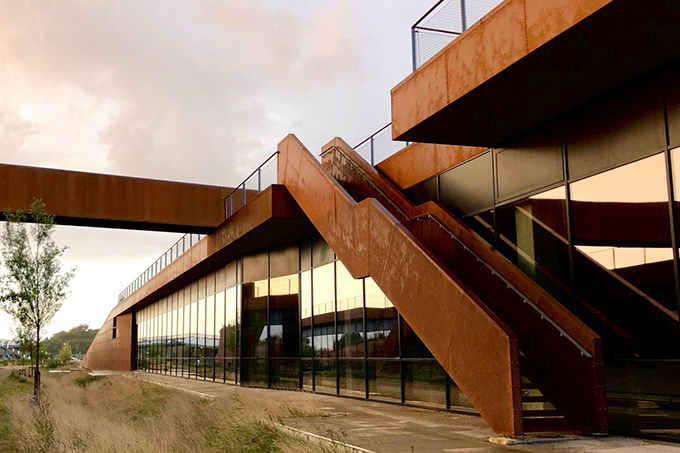
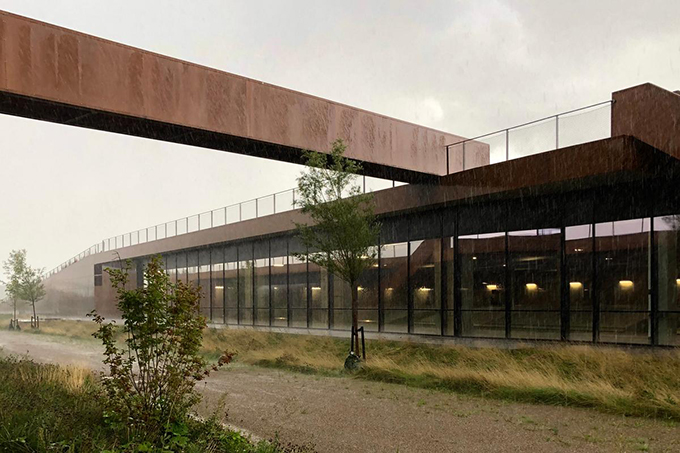
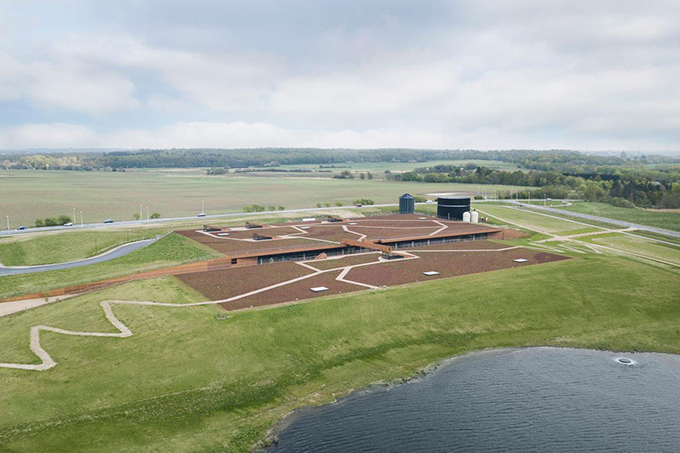
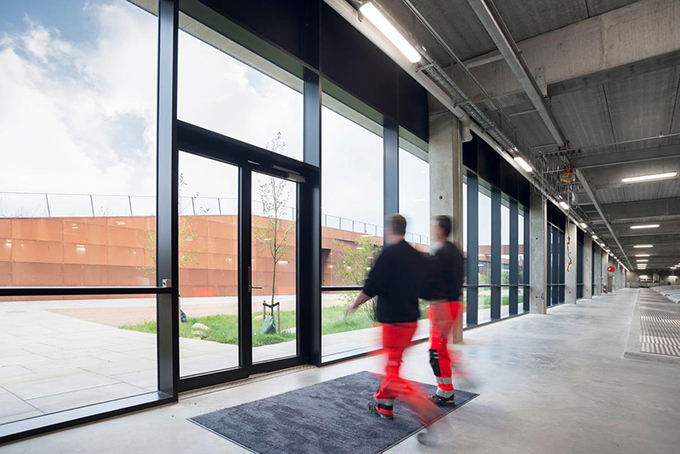
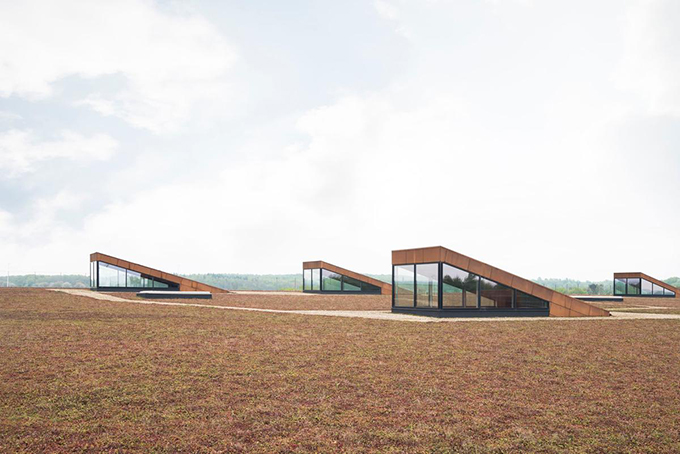
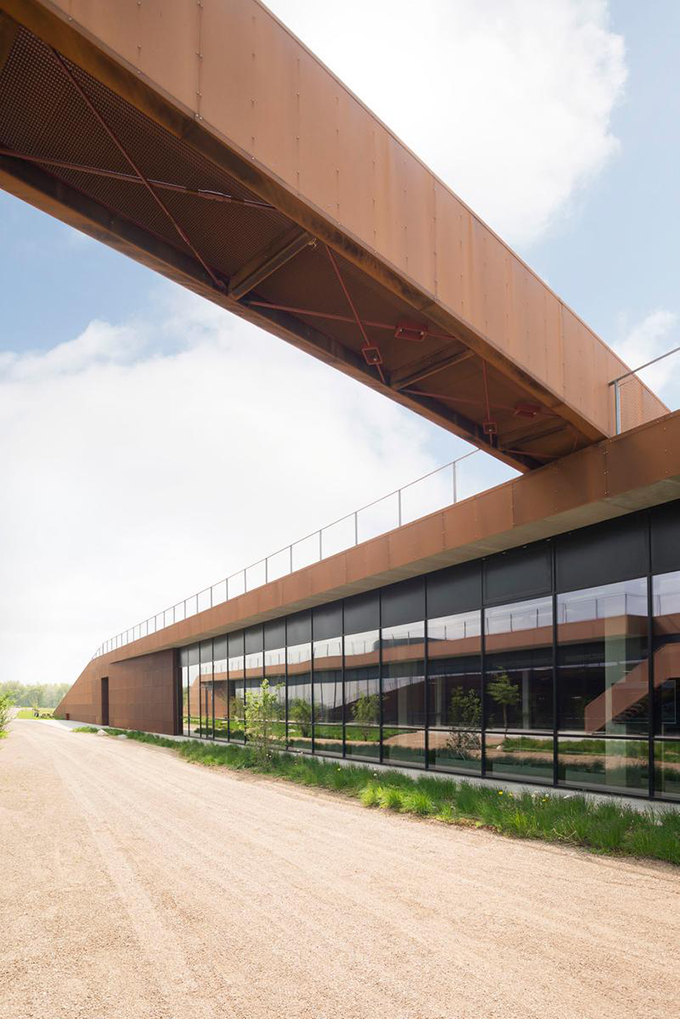
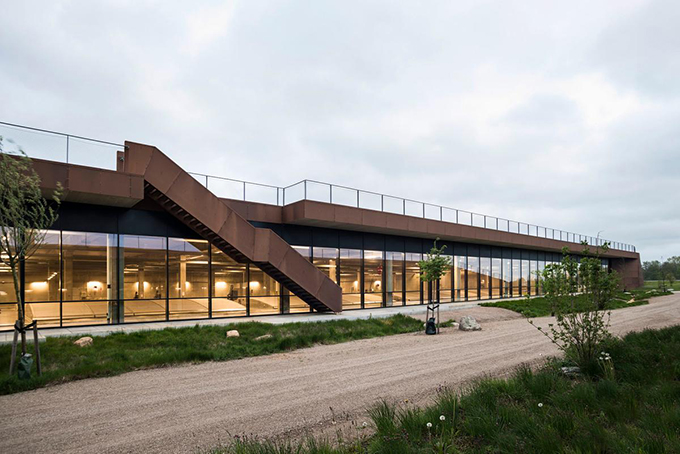


The Solrødgård (Solrodgaard) Climate and Environment Park, serving the city of Hillerød in northern Zealand, seeks to shine a brighter spotlight on the global challenge of sustainable resource use. Developed from a 50-hectare, 1 billion-DKK masterplan, the park aims to open a community dialogue on resource use and climate awareness by creating public appeal within municipal infrastructure. Henning Larsen contributed to the open park with their exterior design and landscaping for the Solrødgård Water Treatment Plant, embedding the public facility within an accessible earthen framework.
Here, a recycling center, wastewater treatment plant and administrative facility stand alongside walking trails, a birdwatching tower, and a roosting hotel for local bats. By weaving recreational space into public utilities, the park creates a unique space where visitors can gain a natural, firsthand exposure to the cycle of natural resources within the community. The design extends a critical conversation on resource scarcity, which disproportionately affects developing communities.
The project sets the industrial facility into the landscape, conceptually pinching the grass and lifting it up to insert program in the space underneath. A service road splits the space in two; the facades exposed in this cut are clad in weathering steel, giving the exterior the appearance of a poche section cut of the earth. The roof on top is a web of meandering pedestrian paths, weaving through perennial plant beds whose blossoms shift in color through the seasons (green, yellow, and red.) Visitors can peer through skylights on the roof and these central glass facades into the plant’s processing wing and filtration facilities, to watch as the plant treats 15,000 cubic meters of wastewater each day. The design concept allows the community to connect with their own use of resources, while minimizing the visual and olfactory presence often associated with water treatment plants.
“The rooftop paths give a view over the rest of the park, but the central pathway is really where visitors can get an idea of how their community’s water cycle works,” explains Marie Ørsted Larsen, Senior Landscape Architect at Henning Larsen. “It’s symbolic of us cutting into the landscape to look within, creating a contrast between the natural water cycle and the constructed process that supports our communities.”
A small creek trickles through this central channel, passing through a narrow garden that demonstrates how natural foliage cleans and filters groundwater. For visitors passing through, this installation is an organic contrast to the industrial presence of the water treatment plant, prompting reflection on the function and environmental footprint of the public utility.
RELATED: FIND MORE IMPRESSIVE PROJECTS FROM DENMARK
TheSolrødgård Water Treatment Plant is capable of expanding its processing capacity to support future growth in and around Hillerød,and is capable of recycling phosphorous and producing biomass heat energy from the wastewater. Future communities will be able to explore a landscape that provides recreation, a connection to nature, and an everyday education in climate awareness.
Solrødgård Water Treatment Plant opened in 2017. As part of the larger Solrødgård Climate and Environment Park, Henning Larsen’s work joins collaborators Gottlieb Paludan, C.F. Møller, Jakobsen & Blindkilde, Orbicon, DHI and Hillerød Spildevand.
Project Information
Project name:Solrødgård Water Treatment Plant
Project Location:Lyngevej 2, 3400 Hillerød
Client:HillerødForsyning
Collaborators:
Masterplan Architect:Gottlieb Paludan
Engineer:Orbicon
Contractor:Jakobsen &Blindkilde
Design period:2015 – 2017
Construction period: 2015 – 2017
Building footprint:12,800 square meters
Henning LarsenTeam
Project manager:Anders Park
Team, architecture:AnnesofieFeidenhansl Milner, Daniel Baumann, Jacob Astor, LærkeDyrholmMøldrup,Marie Ørsted Larsen, Melissa Sandoval, Mikkel Hune, Morten Hauch, NikolajSandvadRamskov, Omar Dabaan
Credits
Drawings: Henning Larsen
Photography:Jacob Due, Daniel Baumann
Find more projects by Henning Larsen Architects: henninglarsen.com


